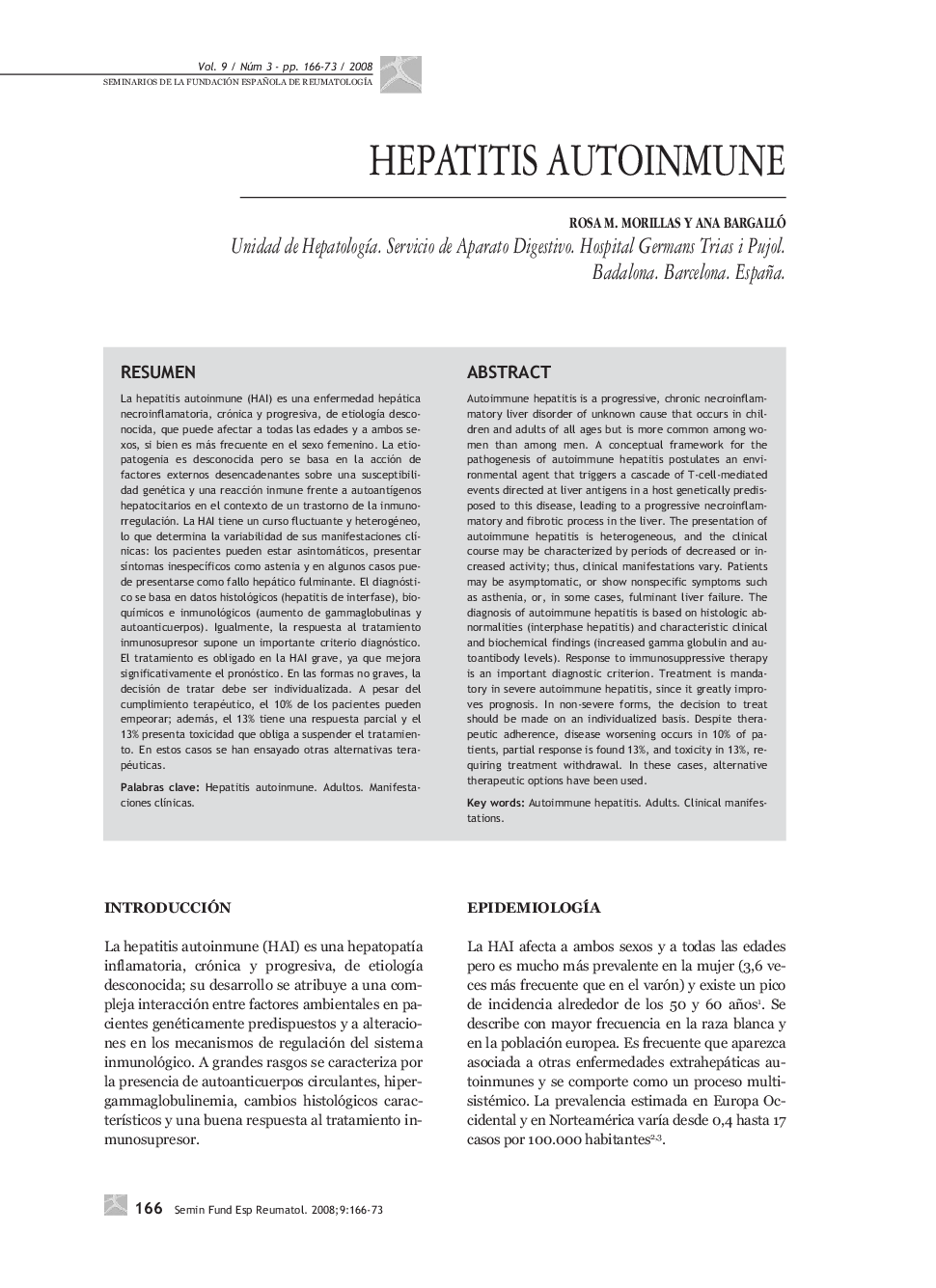| Article ID | Journal | Published Year | Pages | File Type |
|---|---|---|---|---|
| 3391244 | Seminarios de la Fundación Española de Reumatología | 2008 | 8 Pages |
Abstract
Autoimmune hepatitis is a progressive, chronic necroinflammatory liver disorder of unknown cause that occurs in children and adults of all ages but is more common among women than among men. A conceptual framework for the pathogenesis of autoimmune hepatitis postulates an environmental agent that triggers a cascade of T-cell-mediated events directed at liver antigens in a host genetically predisposed to this disease, leading to a progressive necroinflammatory and fibrotic process in the liver. The presentation of autoimmune hepatitis is heterogeneous, and the clinical course may be characterized by periods of decreased or increased activity; thus, clinical manifestations vary. Patients may be asymptomatic, or show nonspecific symptoms such as asthenia, or, in some cases, fulminant liver failure. The diagnosis of autoimmune hepatitis is based on histologic abnormalities (interphase hepatitis) and characteristic clinical and biochemical findings (increased gamma globulin and autoantibody levels). Response to immunosuppressive therapy is an important diagnostic criterion. Treatment is mandatory in severe autoimmune hepatitis, since it greatly improves prognosis. In non-severe forms, the decision to treat should be made on an individualized basis. Despite therapeutic adherence, disease worsening occurs in 10% of patients, partial response is found 13%, and toxicity in 13%, requiring treatment withdrawal. In these cases, alternative therapeutic options have been used.
Keywords
Related Topics
Health Sciences
Medicine and Dentistry
Immunology, Allergology and Rheumatology
Authors
Rosa M. Morillas, Ana Bargalló,
